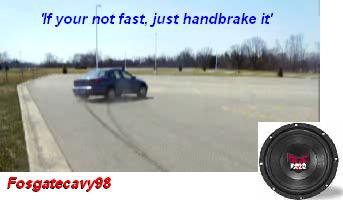This is all on the site
www.change2e85.com
The did an indepent test at Lake Area Tech School in Watertown, SD with a Chevy Tahoe that has over 100k miles on it. They tore the motor apart and found that it actually helped keep the motor cleaner.
I plan to run my Jeep on e85 if gas heads back up aroudn 3.50 a gal and I have spoke with a few others that have used e85 with no problems.
E85 ETHANOL MYTHS
1. E85 Ethanol is corrosive
Yes ethanol is corrosive, but not very much. Gasoline is corrosive too. Ethanol is biodegradable in water. So it has a tendency to contain and attract water. It is not the corrosive properties of ethanol that can cause damage to your vehicle; it is the water which can rust a vehicle’s fuel system from the inside out. Today’s vehicles (since mid 1980s) have fuel systems which are made to withstand corrosive motor fuels and rust from water. Also today’s distilling processes are superior to way back when. We now have better techniques for drying out ethanol or reducing the water content.
On side note, gas contains water too. Ever hear of dry gas?
2. If I put E85 in my gas tank, it will eat it away.
If your car was built in the old days, it was had a lead coated, steel tank. The water in ethanol would cause the tank to rust from the inside out. The government mandated that all gas in the USA contain 10% ethanol to help reduce tail pipe emissions. In the 1980s, automakers made vehicles with fuel systems to be ethanol and rust tolerant. Gas tanks began to contain polymers and Teflon which are extremely durable.
3. If I put E85 ethanol in my non-Flex Fuel vehicle, it will ruin it.
One tank won’t hurt. Some dealers are spreading rumors and charging $300-$3000 for one tank of accidental E85 use. This use may cause misfiring and a rough ride. Your check engine light will come on. If you should accidentally or on purpose put E85 in your vehicle, drain the tank, put in regular gas and all will be well. If you use E85 without a conversion kit or non-Flex Fuel capable vehicle for an extended period, you can damage your engine.
4. Ethanol will burn up my engine.
Ethanol has a lower ignition point than gas. Ethanol has about 115 octane and E85 has 105 octane. It burns cooler and will extend engine life by preventing the burning of engine valves and prevent the build-up of olefins in fuel injectors, keeping the fuel system cleaner.
5. Ethanol will ruin gaskets, seals, rings and more.
Running 100% ethanol or alcohol in an engine can cause damage to cork products.
The rubber neoprene used in the last 20 + years is resistant to the drying effect that ethanol may have.
Today's vehicles are built to withstand the corrosive effects of water in ethanol and gasoline. Any vehicle built since 1985 will have no ethanol related issues. Older vehicles that used more steel in the fuel systems or cork gaskets may have issues from long term exposure to water.
Vehicles in Brazil have been using ethanol for 30 years and they are completely free from using any foreign oil.
6. E85 will eat my rubber fuel lines.
This is another myth from the old days. Rubber technology has significantly advanced so the concerns of a 20 year old car or newer having issues like this are extremely rare. Plus the 15% gas will help keep lines lubricated.
7. E85 will destroy my fuel pump.
E85 won’t destroy your fuel pump. If you convert a high mileage vehicle to Flex Fuel, the E85 will cause the sediment in the gas tank to dissolve and then get sucked up by the fuel pump. It is believed that this sediment may shorten the life of the pump of your higher mileage vehicle (100,000+). We have had no reports from customers with damaged fuel pumps.
Video Proof: E85 does not harm engine, fuel lines, fuel pump, injectors, etc.
We do not recommend using E85 in your vehicle without an E85 conversion kit.
8. It takes more than a gallon of energy to make a gallon of E85.
This was true at one point in time. Today’s advanced technology and distilling processes actually create considerably more units of ethanol than units of energy used. The processes continue to advance and the ratio will continue to increase.
9. E85 Ethanol is worse for the environment than gas.
There have been some people who have published reports stating that E85 is worse than gas for the environment. They have yet to show any scientific proof or case studies that support their claims. Because E85 is cleaner than conventional gasoline, it emits less hydrocarbons, nitrogen oxides, carbon monoxide and hydrogen. E85 reduces carbon monoxide emissions by as much as 70 percent — and less carbon monoxide helps reduce ozone formation and greenhouse gas levels. According to EPA, gasoline is the largest source of manmade carcinogens. Ethanol reduces overall toxic pollution by diluting harmful compounds found in gasoline such as benzene and other aromatics.
10. Using E85 ethanol will get 50% less mileage per tank.
There are some stories floating around about 50% reduction in mileage or twice as much ethanol is needed. Some of the automakers who introduced Flex vehicles did a terrible job with the fuel management systems that mileage did decrease as much as 50%. After some trial and error, the automakers have significantly improved their Flex systems and mileage conservation is within reasonable losses such as 5-15%. Conversion Kits like the Full Flex have been around for over 20 years. Realistic losses range from 5-15% as well.
11. Vehicles need more E85 ethanol so there is less power.
It is true that a vehicle does require more E85 than regular gas since the amount of energy per unit of ethanol is less than that of gas. Ethanol has a lower ignition temperature so the engine overall will run cooler increasing power. It also burns slower so instead of just burning out in one violent explosion forcing the piston down, it continues to burn the entire length of the piston stroke expanding gases more evenly and smoothly. So running E85 will give any engine more power over any pump gas. Also E85 is 105 octane. Gas comes in 85, 89 and 91 octane. The 105 octane of E85 will help to eliminate knocks and pings. All of these benefits will make an engine run smoother and quieter.
12. Won't E85 production deplete human and animal food supplies?
No, actually the production of ethanol from corn uses only the starch of the corn kernel, all of the valuable protein, minerals and nutrients remain. One bushel of corn produces about 2.7 gallons of ethanol AND 11.4 pounds of gluten feed (20% protein) AND 3 pounds of gluten meal (60% protein) AND 1.6 pounds of corn oil.
13. Ethanol does not benefit farmers.
The ethanol industry opens a new market for corn growers, allowing them to enjoy greater profitability. Studies have shown that corn prices in areas near ethanol plants tend to be 5 to 10 cents per bushel higher than in other areas. This additional income helps cut the costs of farm programs and add vitality to rural economies. The additional profit potential for farmers created by ethanol production allows more farmers to stay in business — helping ensure adequate food supplies in the future. Ethanol production also creates jobs, many of which are in rural communities where good jobs are hard to come by. A 2005 study by LECG found the ethanol industry powered the U.S. economy by creating more than 147,000 jobs, boosting U.S. household income by $4.4 billion and reducing the U.S. trade deficit by $5.1 billion by eliminating the need to import 143.3 million barrels of oil. Those kinds of numbers help farmers and all Americans.
14. Ethanol production wastes corn that could be used to feed a hungry world.
Corn used for ethanol production is field corn typically used to feed livestock. Wet mill ethanol production facilities, also known as corn refineries, also produce starch, corn sweeteners, and corn oil — all products that are used as food ingredients for human consumption. Ethanol production also results in the production of distiller’s grains and gluten feed — both of which are fed to livestock, helping produce high-quality meat products for distribution domestically and abroad. There is no shortage of corn. In 2004, U.S. farmers produced a record 11.8 billion bushel corn harvest — and some 1.3 billion bushels (about 11 percent) were used in ethanol production. Additionally, the 2005 crop was among the largest on record. 2007 will yield the largest corn crop since the 1940s. In other words, there is still room to significantly grow the ethanol market without limiting the availability of corn. Steadily increasing corn yields and the improved ability of other nations to grow corn also make it clear that ethanol production can continue to grow without affecting the food supply.
null
Thanx Charles








